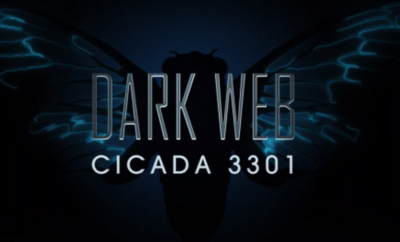Features
The Man in the High Castle: Book to Screen Comparison
By: Lindsay Flanagan
Fans of Amazon’s The Man in the High Castle may be reeling from the final episode of Season Two and may seek answers to the cliffhanging questions in the Hugo Award winning novel upon, which the series is based. Is Frank (Rupert Evans) still alive? What will happen to Robert Childan (Brennan Brown) and Ed McCarthy (DJ Qualls) in the neutral zone? Will Obergruppenführer John Smith (Rufus Sewell) step in and save his son, Thomas (Quinn Lord), who has committed himself to the Nazis to be exterminated because of his incurable muscular dystrophy? What about Joe Blake (Luke Kleintank) and Julianna Crain (Alexa Davalos)? Will Joe be charged with war crimes like his father? Is Trudy (Conor Leslie), Julianna’s sister, really alive or has she been brought over from the other reality, the one Trade Minister Tagomi (Cary-Hiroyuki Tagawa) visits and that Kotomichi (Arnold Chun), Tagomi’s assistant, is from?
Fans may be surprised to learn the answers to these questions won’t be found in the original novel—not even the most resounding one of, “Can history be corrected?” The novel by Phillip K. Dick is described as “a haunting vision of history as a nightmare from which it may just be possible to wake,” and the waking up—the finding the true reality— is what the Amazon series is building toward. The themes of the novel (living under a totalitarian government and the ascension of a “superior” race) are very much apparent in the series. The writers build upon Dick’s historical dystopia and expand the world of the alternate reality/history, flesh out plot lines and more fully develop the characters. Additionally, characters are added to the series to explore a world under Nazi control. Obergruppenführer John Smith is portrayed as a stereotypical American, but with a Nazi agenda and title, which makes him even more frightening. The writers also chose to have Hitler still alive, although his death is imminent due to failing health. The balance of power within the Reich creates even more tension, anxiety and uncertainty of the future.
While the ending of Season Two raises many surface questions, the ones the novel poses are deeper: What is reality? What is nightmare? The question that echoes long after the book is closed is the question of truth: Were the characters living in the only world or were they in an alternate reality that could be escaped?
After two seasons, the series has attempted to provide answers and is upfront about the possibility of another reality. Julianna sees the film that clearly shows the Allied powers won the war. The film is part of a series of newsreels that are collected by the Man in the High Castle, whereas in the novel the Man is the author of a popular (but banned in the Reich) novel The Grasshopper Lies Heavy. Written by Hawthorne Abendsen, it tells the story of a reality where the Allied powers won, although it is not “our” reality—Roosevelt steps down as President after two terms and a man named Rex Tugwell is now President. The newsreels in the series appear to resemble our reality, the one where Roosevelt serves four terms and there is no Mr. Tugwell.
The series’ premise is a heroes-save-the-world story, one where they will correct history. Julianna receives the film from her half-sister, Trudy. Prior to her murder by the Kempeitai, Trudy was a member of the Resistance – a group who collects and protects the films. Trudy and the Resistance group are not in the novel, nor is the event that catapults Frank Frink into the Resistance—his arrest for not telling the Kempeitai about Julianna’s whereabouts and the subsequent murder of his sister and her children.
The novel’s focus is more on the lives of five ordinary characters—Juliana Frink, Frank Frink, Nobusuke Tagomi, Rudolph Wegener/Mr. Baynes (played by Carsten Noorgard in the series) and Robert Childan—who are just trying to survive under a corrupt system. The title of “hero” doesn’t seem to fit as the book’s overall story arc, but it does fit within the pages during small moments of heroism where the characters stand up against the system.
In the novel Julianna Frink, the estranged wife of Frank Frink, is living in the neutral zone. She becomes involved with a truck driver named Joe Cinnadella, who has read the Grasshopper and allows Julianna to read his copy. Joe and Julianna go on a road trip and decide to pay a visit to Abendsen, the author. However, Julianna begins to suspect Joe has an ulterior motive when he acts violent toward her. She learns he is a Swiss spy sent by the Germans to kill Abendsen. To save Abendsen, Julianna kills Cinnadella and goes to Abendsen to warn him that there may be other attempts on his life.
Cinnadella is represented by the character Joe Blake in the series, a much more likable and complicated character. Although a Nazi, Joe shows compassion and loyalty to Julianna when they meet in the neutral zone. These two representations of Joe bring up questions about the series—will Julianna find herself in the same position where she must kill Joe to save Abendsen—thereby saving history and correcting reality?
In the novel, Frank Frink works in a factory that produces replica antique American guns, as he does in the series. Frank loses his position in the factory, but he blackmails the owner into giving him the money he needs to start a handmade jewelry business with Ed McCarthy. Robert Childan agrees to keep their jewelry in his store on consignment. Although not confident the jewelry will sell, Childan is surprised when one of his clients tells him it has great spiritual value. The client suggests he make cheap trinkets from the jewelry, but Childan, heretofore afraid of and always bowing down to the Japanese, makes his stand. He refuses to degrade the authentic American jewelry. For Childan, this jewelry is a representation of the American identity itself and he will not sell it out for monetary gain.
The jewelry has even more significance when Trade Minister Nobusuke Tagomi decides to buy a piece of the jewelry, although at first he does not see or feel anything special about it. Tagomi has been involved in meetings with Rudolph Wegener, a Nazi defector, yet Tagomi knows him as Mr. Baynes, a Swedish businessman. Wegener/Baynes is not visiting on business—rather, he is coming to Tagomi to give him information that Germany plans to bomb Japan. This “Operation Dandelion” in the novel is fleshed out in the series, setting the stage for Germany to fight their “final war.” The Germans in the novel try to stop Wegener/Baynes by arresting him, but Tagomi kills the SD officers. Killing the SD men is against Tagomi’s conscience and spirituality and in his depressed state, he takes the jewelry he bought from Childan and studies it – finding that it transports him to an alternate reality where the Allied powers won the war. In the series, Tagomi moves between the realities after studying the oracle.
In that reality, Tagomi is refused a seat at the lunch counter by white men. Furious, he leaves and eventually returns to the reality he’s been living in. There, he is presented with a document that would send Frank Frink (whom he does not know, nor is he aware that Frank is the jewelry-maker) to Germany to be disposed of because he is Jewish. Tagomi refuses to approve the transfer and Frank is let out of Nazi custody. Perhaps Tagomi does this as his own personal stand against the Nazi powers or perhaps the jewelry has connected the two men spiritually. Will Frank and Tagomi meet in the series?
Before Frank sold the jewelry and prior to his arrest, he sent a piece—a handmade pin—to Julianna. She wears it when she meets Abendsen who mentions it: “What’s that pin on your dress do? Does it just hold everything together?” Perhaps Julianna sees the truth—Germany and Japan lost the war—because she’s wearing the pin. The question is, when she takes it off will she still be able to see the truth?
The future episodes of the series have plenty of opportunity to answer this and the other questions that have been posed by not only being unanswered in the novel, but by being brought to a head in the series. Dick had attempted to write a sequel to the book and he hinted at time travel being part of the continued story. It makes sense—in the novel, the Nazis perfected travel by rocket and created colonies on the moon, Venus and Mars. Who is to say they hadn’t mastered time travel as well and adjusted the moment in time that caused the Axis powers to lose the war? Perhaps history is as pliable as the future, where it can be changed from one person’s paradise to another person’s horror show.





You must be logged in to post a comment Login